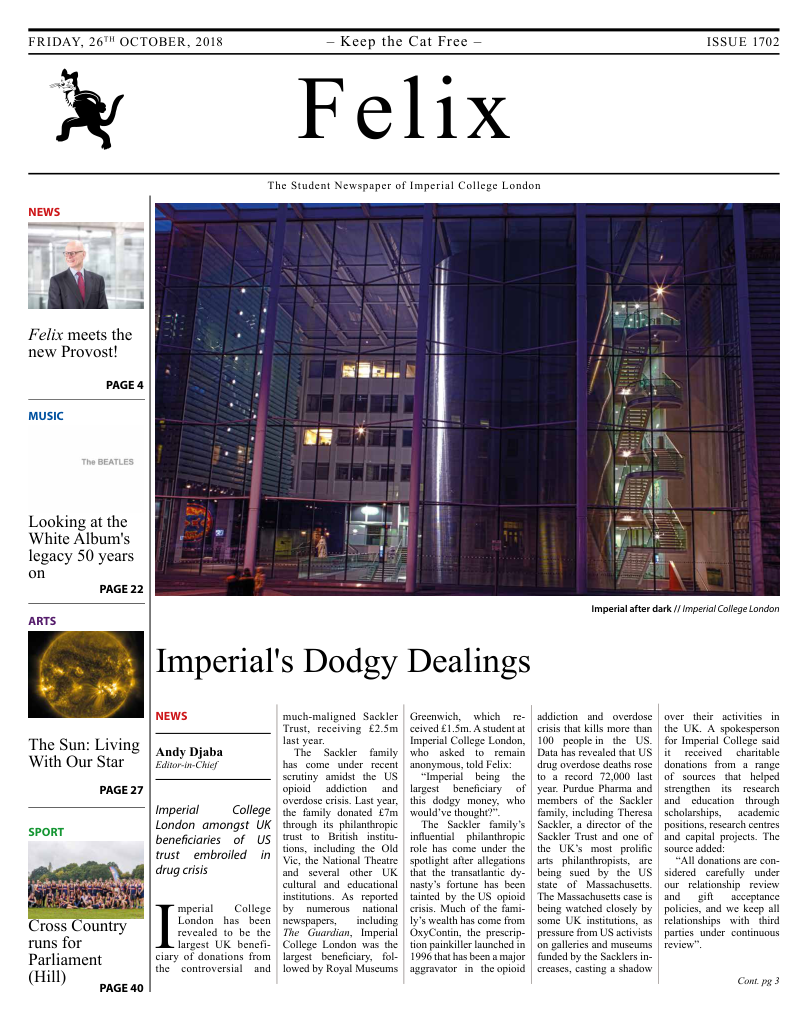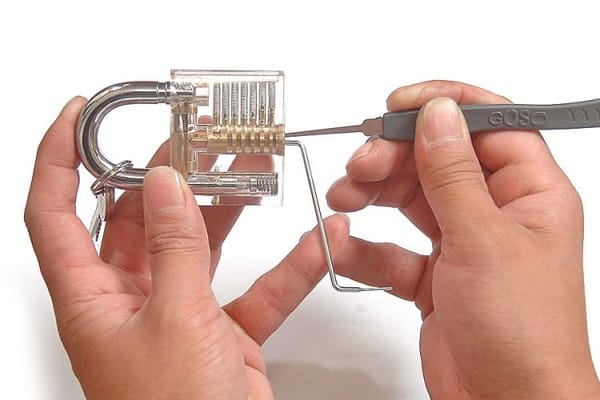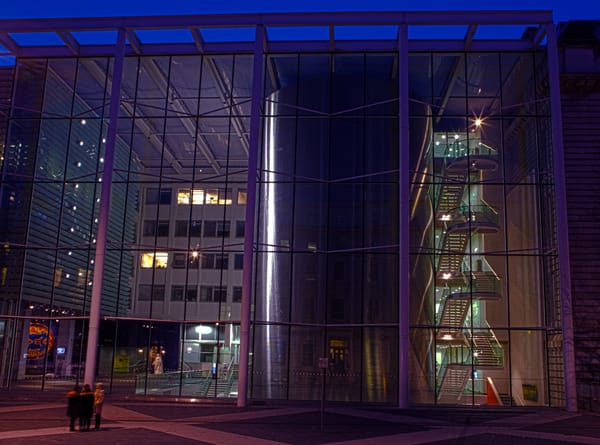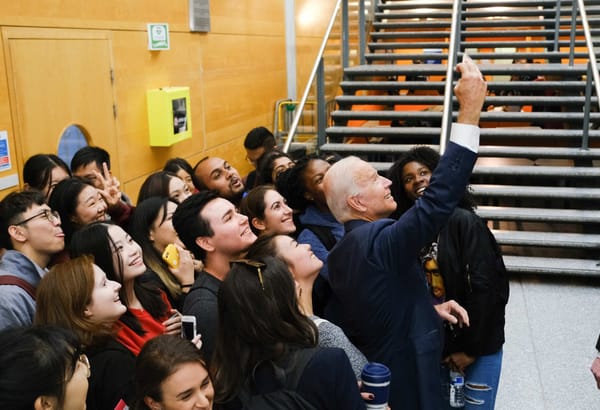New Provost in Town
Felix sat down with Ian Walmsley, the new Provost of Imperial College London, to reflect on his first month on the job

Professor Ian Walmsley FRS, who started his new role as Provost of Imperial College London on 1st September, sat down with Felix for an exclusive interview. The Imperial alumnus and world-renowned expert in ultrafast and quantum optics, who joined the College from his role as Pro-Vice-Chancellor (Research and Innovation) at the University of Oxford to succeed Professor James Stirling, lets Felix know what makes him tick.
Felix: Not to be blunt but… what does the Provost do? The statement on the website says, "the Provost is Imperial’s chief academic officer and provides the leadership to ensure excellence in Imperial’s core academic mission in education, research and translation" but, In layman’s terms, what does that mean?
Ian: It’s a very good question because it’s not a job that I was v ery familiar with from my time at Oxford, which has a very different structure. Imperial is unique in the UK in the way that it has structured its senior leadership so it’s an exploration for me as well but what I found attractive about it was that it was a position where developing the overall academic strategy of the institution and figuring out how you would implement that and resource it was key. So whether that's around our global research position or the student experience. Doing this is quite an exciting opportunity
Is there a typical day for the Provost or is every day different?
I’ve only been here a month so no typical day yet! I haven’t got to that point yet but, at the moment, what I’m spending my time doing is going around getting to know people, getting to know the Heads of Faculty and Heads of Departments, visiting all the departments over the course of the next few months, academics, junior researchers, students, staff and getting a feel for the key issues and aspirations. Learning a bit about that will help inform how we develop the academic strategy in the future.
How would you describe your first month?
Very exciting. It’s always great to be in a new place and learn about what’s going on. But certainly there’s a lot of stuff coming at me so trying to get some of that to stick and start figuring out how things fit with one another has been the challenge I think.
You were a student here. Did you have any impressions about what the job would be like and have they changed? Have you been surprised by anything since you started working here?
I had had quite a number of research collaborations with colleagues, mainly in Physics, and also on other projects with senior leaders here so I had a sense of the place and the sort of dynamism and agility that it has, which I think was quite attractive. Learning about how that’s working and how one might help improve that sort of thing has been the new sort of things that I’m beginning to see. In terms of surprises, only that it always looks more exciting than you think it’s going to be but nothing that has made me think that I have at all made the wrong decision.
What inspired you to study Physics?
Certainly I found the idea of learning about the way the world is at its fundamental structure just fascinating so I got really fired up about it. I had some good teachers in school that, when I was thinking about what to do with that, pointed me to Imperial and I’m really glad they did because the idea of a university where you could study with world leading researchers, living in London, was absolutely the right thing for me to do. The course here, the people I worked with, the people I met, continued to drive that. I felt I had a really great start here and I’m really grateful for that.
Here at Imperial, Physics has unfortunately got quite a low student satisfaction. Do you have any plans to tackle the low student satisfaction, particularly in Physics, but across other subjects?
It’s really disappointing that we’re in that circumstance and we absolutely have to fix it. I think there’s no reason why every student here shouldn’t really feel that they are getting not only a good education but are part of a thriving environment and community. I think that’s the way we need to roll here. I met with the Head of Physics just this morning to learn about the plans that she is putting in place to really change the dial and engage with students to understand what it is that’s missing, how they might fix it and I’m impressed that has happened rapidly and with intention to change things. Simone, the Vice-Provost (Education) is also working with that group to understand how we share best practice across the College. Places that have done extremely well, like some of the Engineering departments, what are the things that they’ve been doing and how do we determine whether those will work in other places? That’s now getting underway and it’s absolutely the case that we need to get this right.
You say some of the plans are already getting underway, which specific plans are already in place?
Looking at ways to change the workload so you still get to learn the things you need to but in a way that gives a bit more time for thinking. Student-staff interaction- making sure that the students and academics are part of the same community and that people know one another. Figuring out how to find study space for students and things of that kind. All of these I think are about building the student-academic interaction and making sure that what is being asked of the students is reasonable, without shirking on the expectation that they’re going to have to work hard to do well.
What would you say is the single biggest problem that Imperial has and your biggest challenge in taking up the role? How do you see the future of Imperial and how you can help to shape that future?
I think the opportunity that Imperial has is as a world leading higher education institution that really is globally competitive. That’s mentioned up there in the same breath as MIT and the places that are driving the forefront of research, coupled together with a cutting edge, really vibrant teaching and learning environment and an education where the best students and best academics are learning side by side. That seems to me where we should be. We already have a really fantastic set of academics and some really great students so I think the core of that is there and our challenge is now how do we invest in that to really ensure that we are globally visible and globally competitive.
In terms of investing in that, what do you see as your input in shaping how Imperial becomes more spoken about on a global scale?
Taking our academic strategy and vision and making that into a very clear narrative that we can use externally to show how Imperial is pushing the boundaries of knowledge and using that knowledge for the benefit of the world and providing people with opportunities to learn within that is a core thing. Drawing together that strategy and making it into a strong external vision. Also, figuring out how we implement that. We’re not going to be able to do everything at once so how do we plan that out, prioritise and move along that trajectory? You’ll be aware of the great opportunities around White City, around the Masterplan for this campus and all of the plans that the faculties have.
Last year there were the UCU strikes. What are your thoughts on the fallout from the strikes and what is the College doing to ensure that something like the strikes doesn’t happen again?
Just as we talked about the student experience and the student community needs to be a valued part of the institution, that’s certainly true for the staff as well and the pensions are clearly a part of that. Of course I wasn’t here when the discussion was going on earlier but what we’re now going to take forward is we’ve got... a consultation from USS and UUK coming up. We’re going to talk with academics about their response to the recommendations or the suggestions that have been made and how we respond to that consultation. I think it’s a whole College conversation so that we can come up with a plan that is good for individuals and good for the College as a whole.
How is the university preparing for Brexit, what do you think will be the effect of a no-deal Brexit on Imperial?
Clearly Brexit is a major change coming up in the next year and it would be silly to think it won’t have an impact on the College. I think a key issue, probably the leading issue, is how does it affect people. We’ve got a lot of European staff and students and we want to make sure that they consider themselves absolutely part of the community and valued. We will continue to work to make sure that happens. We’re going to remain a globally facing institution. That’s not going to change in intent. So all we’re doing is navigating our way through when the new legislation comes down the line. In terms of other impacts, we do get a considerable amount of research income from the EU and it may be that that changes in some way. It’s still up in the air entirely just what our relationship with the European Union will be. It’s a little bit crazy but the signs from government have always been very positive that research engagement is important for the UK. With a forward plan that’s based on an industrial strategy, you just can’t afford not to have world leading ideas generation and exploitation in this country. So I hope that we come to a position where we can continue to participate in the framework programs in some way.
Do you have any plans for Arts at imperial?
This morning I was just meeting with Ollie at the Blyth centre and learning about what fantastic contribution that makes to College life. We talked a little bit about that aspect of what the Blyth Centre might be looking for in the future and may be looking to do. I cannot say I have plans yet but that part of the College, coupled with the location that we’re in, this fantastic agglomeration of museums and colleges, has got to provide some really cool opportunities. The Dyson School of Design Engineering and that joint masters course between Imperial and the Royal College of Art is just a wonderful example of the kind of things we can do. There’s joint programs with the Royal College of Music, Physics and Maths I think. That’s great as well. The raw material we have is really fantastic and I’m sure there’s something that can happen.
Will Freedom of Speech on campus be protected?
Yes absolutely. It’s crucial that people are able to speak their minds and we should do that in an environment of dignity and respect for that discourse.
October is Black History Month. I just wrote about the Race Equality Charter and the Equality Diversity and Inclusion strategy (EDI). For the last ten years there have been less than 5 black lecturers. In terms of speaking more broadly about EDI and also tackling this direct issue where there’s not that much diversity in the senior lecturer position, what are yours and the College’s plans?
I think you’re absolutely right. If you look at our diversity profile in academics, not only in terms of race but also in terms of gender, there’s clearly much work to be done. The strategy and its implementation I think are one way we get started on that but we do need to be very active in looking at ways to change that balance. Again, I don’t have a detailed plan for you at this stage but we’ll certainly do that in the context of world leading excellence in research and education- that will be the benchmark and we’ll work within that framework and the EDI strategy to make sure that we increase representation from those groups
How do you spend your free time? Do you have any?
I like to cycle. I try to go out on weekends and ride around the countryside. My wife is the Director of Chapel music at Wadham in Oxford so I sing in her choir when I can.
Do you enjoy being an academic?
Yeah I do. I’ve really had a career that I’ve really enjoyed at every stage and the idea that you can think about the world and think about the way in which your ideas can impact it and work with great young students and young people has just been fantastic. Wouldn’t change it.
What advice would you give to a student or someone just starting out in their career, in academia or a wider career?
Keep at it. Work hard, have confidence in yourself and just push along.
Which was your favourite Love Island couple?
I have to say I did not catch Love Island so I can’t really address that question. I have only very recently really briefly understood the concept of Love Island.









